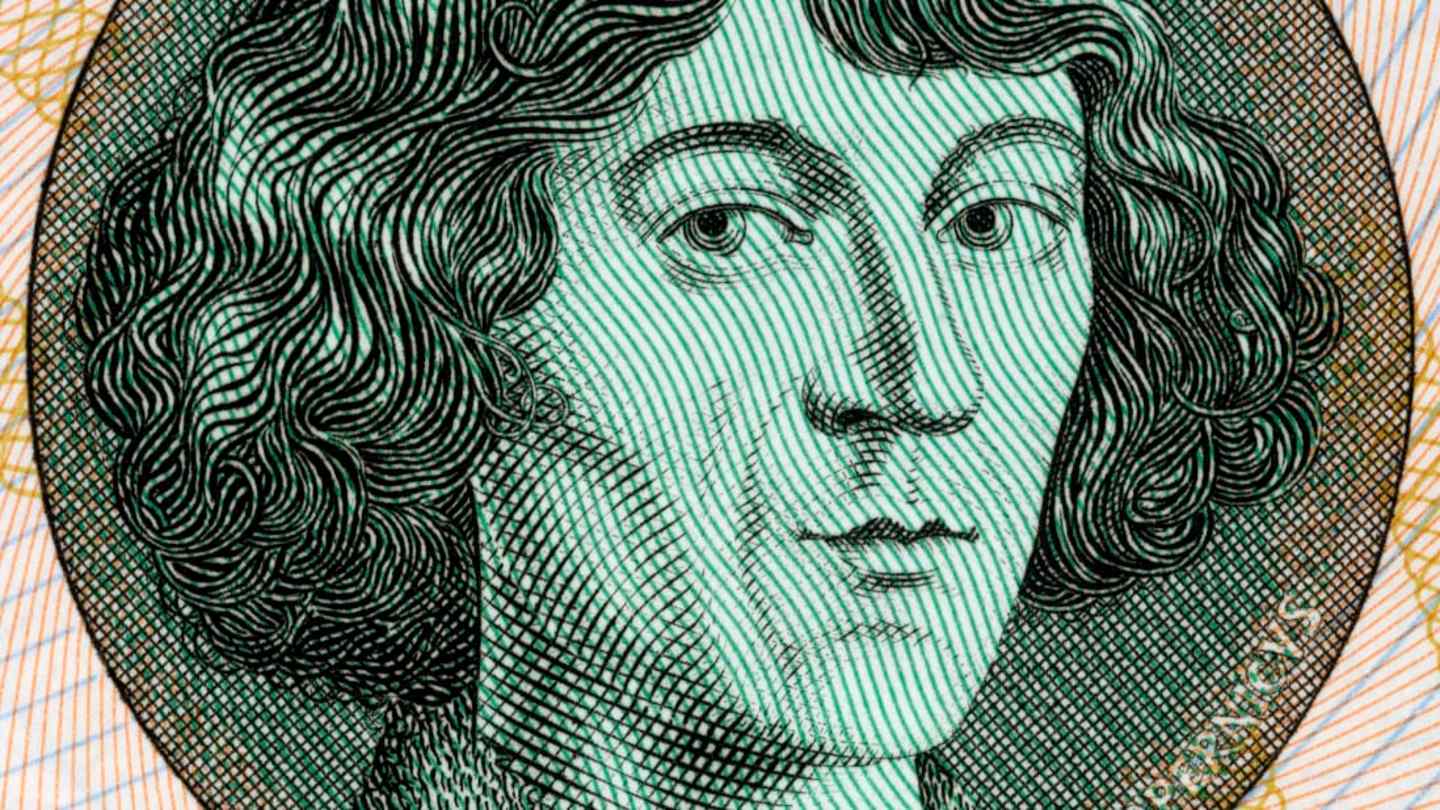Have you ever looked up at the night sky and wondered about our place in the universe? For centuries, people believed the Earth was the center of everything, with the sun, moon, and stars all revolving around us. This idea, Called Geocentrism, seemed perfectly logical at the time. But then came Nicolaus Copernicus, a brilliant Polish astronomer who dared to challenge this long-Held Belief.
Interesting facts about copernicus, like his revolutionary theory of heliocentrism, completely changed our understanding of the cosmos. Copernicus proposed that the Sun, not the Earth, was at the center of the Solar System. Imagine the audacity! He argued that all the planets, including our own Earth, orbited around the Sun. This seemingly simple shift in perspective had a profound impact on science and philosophy, forever altering our view of the universe.
While his ideas were initially met with resistance, especially from The Catholic Church, Copernicus’s work eventually gained widespread acceptance. His legacy as a pioneer of modern astronomy continues to inspire awe and wonder. Today, we celebrate his contributions through monuments, Scientific Discoveries, and even a chemical element named After Him: Copernicium.
Early Life And Education Of Nicolaus Copernicus
Nicolaus Copernicus was born into a world where the stars seemed to hold all the answers. Born in 1473 in Thorn, a city nestled in what is now Poland, young Nicolaus grew up surrounded by the wonders of the natural world. His family, Though Not Wealthy, valued education and encouraged his thirst for knowledge.
His journey began at a local school where he excelled in subjects like mathematics and astronomy. As a teenager, Copernicus moved to Krakow to pursue further studies at the renowned Jagiellonian University. Here, he immersed himself in the world of philosophy, law, and of course, the celestial bodies that fascinated him So Much. After several years, Copernicus felt the pull to explore Even Wider Horizons. He traveled to Italy, studying at prestigious universities in Bologna and Padua. This period proved crucial for his development as a scholar, exposing him to diverse intellectual currents and groundbreaking scientific ideas.
His relentless pursuit of knowledge ultimately led him to earn a doctorate in canon law – a testament to his intellectual prowess and ambition. But even as he honed his Legal Skills, Copernicus never strayed far from his True Passion: understanding the mysteries of the universe. Little did anyone know that this young man from Thorn would one day revolutionize our view of the cosmos with his groundbreaking Fun Facts About Copernicus.
The Heliocentric Theory: A Revolutionary Idea
Imagine for a moment life before telescopes and space travel – a world where our understanding of the universe was limited by what we could observe with the naked eye. People believed in geocentrism, the idea that the Earth stood still at the center of everything, with the sun, moon, and stars all revolving around us. It seemed logical enough, but Nicolaus Copernicus, a brilliant Polish astronomer, had a different vision.
He spent years studying the movements of celestial bodies, meticulously recording their positions and tracking Their Patterns. His observations led him to a Radical Conclusion: what if the Earth wasn’t the center? What if it was the Sun that held the key to understanding the cosmos? This revolutionary idea, Known As Heliocentrism, challenged centuries of established thought and shook the foundations of science.
Copernicus understood that proposing such a theory wouldn’t be easy. He knew it would face fierce opposition from those who believed in the traditional geocentric model. So, He Carefully Crafted His Arguments, gathering evidence to support his claims and addressing potential objections. This meticulous approach reflects Copernicus’s dedication to scientific rigor and his desire to present a compelling case for his interesting facts about Copernicus Heliocentric Theory.
 Facts About American Museum Of Natural History: Unveiling its Secrets
Facts About American Museum Of Natural History: Unveiling its SecretsDe Revolutionibus Orbium Coelestium: His Masterpiece
After years of careful study and contemplation, Copernicus finally felt ready to share his groundbreaking ideas with the world. In 1543, on the eve of his death, he published a monumental work titled De Revolutionibus Orbium Coelestium – On The Revolutions Of The Heavenly Spheres. This book laid out his heliocentric theory in detail, explaining how the planets revolved around the sun and providing mathematical calculations To Support His Claims.
Imagine the impact this had on the world! It was like flipping a switch, suddenly illuminating a new understanding of our place in the universe. De Revolutionibus Orbium Coelestium wasn’t just a scientific treatise; it was a bold statement that challenged existing beliefs and paved the way for a new era of Astronomical Exploration. Although Copernicus himself died before witnessing the full impact of his work, he left behind a legacy that would forever change our view of the cosmos.
The book didn’T Immediately Gain Widespread Acceptance, facing resistance from those who clung To Traditional Ideas. But over time, Its Brilliance Shone Through, influencing generations of scientists and inspiring Countless Discoveries. De Revolutionibus Orbium Coelestium stands as a testament to Copernicus’s courage, His Intellectual Prowess, and his enduring impact on humanity’s quest to understand the universe.
Impact and Legacy of Copernicus’ Work
Copernicus’S Revolutionary Ideas didn’t just spark a scientific revolution; they had a profound impact on the way we think about ourselves and our place in the universe. His heliocentric model shifted our perspective from Earth-Centered To sun-centered, challenging long-held beliefs and opening up new avenues of inquiry. Imagine the intellectual jolt! This shift wasn’T Just About Astronomy; it touched on philosophy, religion, and even art, influencing how people viewed their role in the grand scheme of things.
The legacy of Copernicus extends far Beyond His Groundbreaking Theory. His meticulous observations and careful analysis laid the groundwork for future astronomers, inspiring generations to explore the cosmos with greater depth and precision. His work paved the way for giants like Galileo Galilei and Johannes Kepler, who built upon his foundations to further refine our understanding of the Solar System.
Today, Copernicus is remembered as a visionary who dared to challenge the status quo and whose courage opened up new realms of scientific discovery. Interesting facts about Copernicus are still studied in classrooms around the world, reminding us that even seemingly simple ideas can have a profound impact on human history. His story continues to inspire us To Question Assumptions, Embrace Innovation, and pursue knowledge with an open mind.
Copernicus: A Lasting Influence On Science
Copernicus’s influence on science extends far Beyond His Heliocentric Theory; it’s woven into the very fabric of modern astronomy and our understanding of the universe. Think about it: every time we launch a spacecraft, map the orbits of planets, or peer into distant galaxies, we’re building upon the foundation laid by this remarkable thinker. His emphasis on observation, Mathematical Analysis, and the pursuit of evidence-based explanations set a precedent that continues to shape scientific inquiry today.
Even centuries after his death, Copernicus remains a towering figure in the history of science. His work is celebrated in textbooks, museums, and countless scientific advancements that have Transformed Our World. We owe much of our understanding of the solar system, the vastness of space, and our place within it to this visionary who dared to challenge conventional wisdom and ignite a revolution in thought.
Interesting facts about copernicus are still Relevant Today Because His Legacy isn’T Just About Past Discoveries; it’s about inspiring future generations to explore the unknown, Question Assumptions, and push the boundaries of human knowledge. His story reminds us that even one individual can make an immeasurable impact on the world through the pursuit of truth and the courage to challenge the status quo.










